“Investors are right in one sense: the money needed for re-building Japan must come from somewhere. But they are wrong to assume that catastrophes are necessarily bad for reinsurers. For a start, insurance cover varies greatly. In Japan, the government, not private companies, will provide most of the compensation for earthquake and tsunami damage, while reinsurance of nuclear facilities does not generally extend to so-called acts of God. Initial estimates of up to $35bn of total insured losses (against $150-$250bn of total loss) would mean a hit equivalent to less than 4 per cent of Hannover Re’s market capitalisation, according to Credit Suisse. More damage is not necessarily worse for insurers. To the contrary, larger claims from Japan would keep prices up for property catastrophe reinsurance, which for US companies was set to fall 5-10 per cent this year. Of course, nobody wants global insured losses to exceed $100bn as they did in 2005 (helped by hurricanes Katrina, Rita and Wilma), but when capital is eroded, reinsurance prices have to rise to compensate. On average, reinsurance stocks outperformed the S&P 500 for up to a year following the 16 largest global catastrophes, according to Citigroup.
Comment:
If property/casualty insurers had to sell assets related to Japanese claims, what would they sell? The chart below is a breakdown of assets held by these companies. This data is from the Federal Reserve’s flow of funds report covering domestic U.S. property/casualty companies, many of which have foreign subsidiaries.
Interestingly property/casualty insurers own more U.S. municipal bonds than any other asset, about $370 billion. This is followed by corporate bonds ($299.2 billion) and equities ($228 billion). Sixth on the list, at just $91 billion, are U.S. Treasuries. Yet this is the one category which people seem to be focusing on when attempting to determine what assets these insurers may have to sell.
<Click on chart for larger image>
- The Associated Press – Japan boosts holdings of US debt in January
Japan increased its holdings of U.S. government debt for an eighth straight month in January. But the second-largest holder of U.S. Treasury bonds will likely scale back its purchases of foreign holdings, and even sell off some, in coming months to divert money toward rebuilding a nation devastated by a powerful earthquake and an ensuing nuclear crisis. The Treasury Department said Tuesday that Japan boosted its holdings 0.4 percent to $885.9 billion in January. Economists said a reduction in Japan’s foreign holdings would put some upward pressure on U.S. interest rates. But they cautioned the change would have a limited impact. The Federal Reserve, which has been buying Treasury securities as part of its efforts to keep interest rates low, would move to counteract any significant increase in rates, they said. “Any impact from the sales would be short-term and relatively small,” said Nariman Behravesh, chief economist at IHS Global Insight.
Comment
We discussed the U.S. assets Japan owns in our monthly TIC report yesterday. The chart below shows Japan’s holdings of U.S. Treasuries, which stood at $885 billion on January 31, 2011.
<Click on chart for larger image>
Comment
How much might the Japanese government have to sell to pay for some of this rebuilding? For now we believe the answer is none as the Bank of Japan (BoJ) is aggressively printing money. As the next chart shows, the BoJ has been increasing its balance sheet over the last two years to combat the financial crisis (green arrow) and it spiked higher in the last two days in response to the earthquake.
<Click on chart for larger image>
Comment
So, what would change this equation and compel the Japanese to sell their U.S. Treasury holdings? If the market worried that the BoJ’s money printing shown above was inflationary, it would lead to a big rise in Japanese government bond yields. This would signal a limited tolerance to further Japanese money printing and compel them to sell assets. However, as the next chart shows, this is not yet happening. Japanese government bond yields are falling in the aftermath of the earthquake.
<Click on chart for larger image>
Comment
Since Japanese government yields are not rising, does that mean the U.S. Treasury market is in the clear? Not yet. As the next chart shows, the Japanese have borrowed substantially more than the U.S. when compared to GDP. Japan has lost its Aaa rating (highlighted) because of this massive borrowing, leading some to argue that default is a likely scenario (see here, here and here). Adding more debt for reconstruction puts them at further risk of looking like Greece or Ireland.
<Click on chart for larger image>

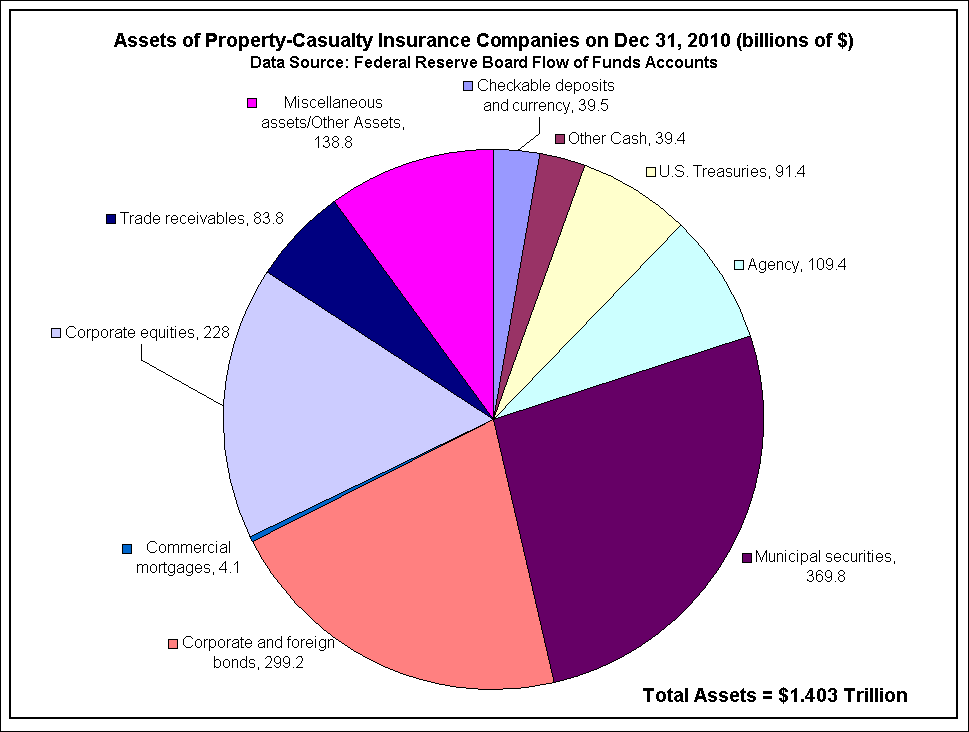
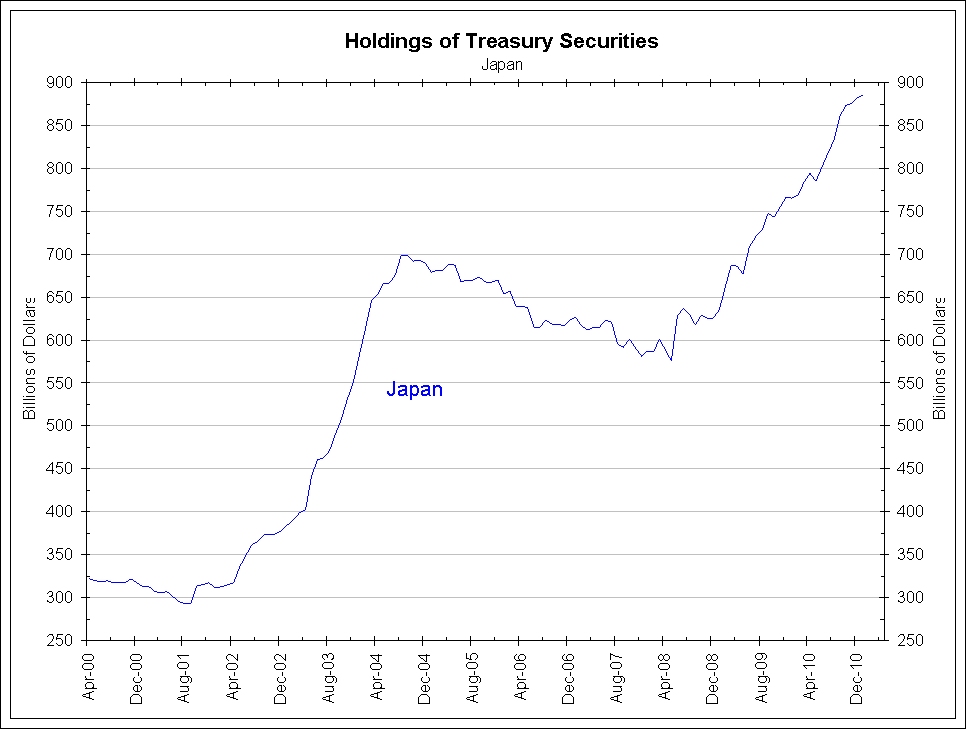
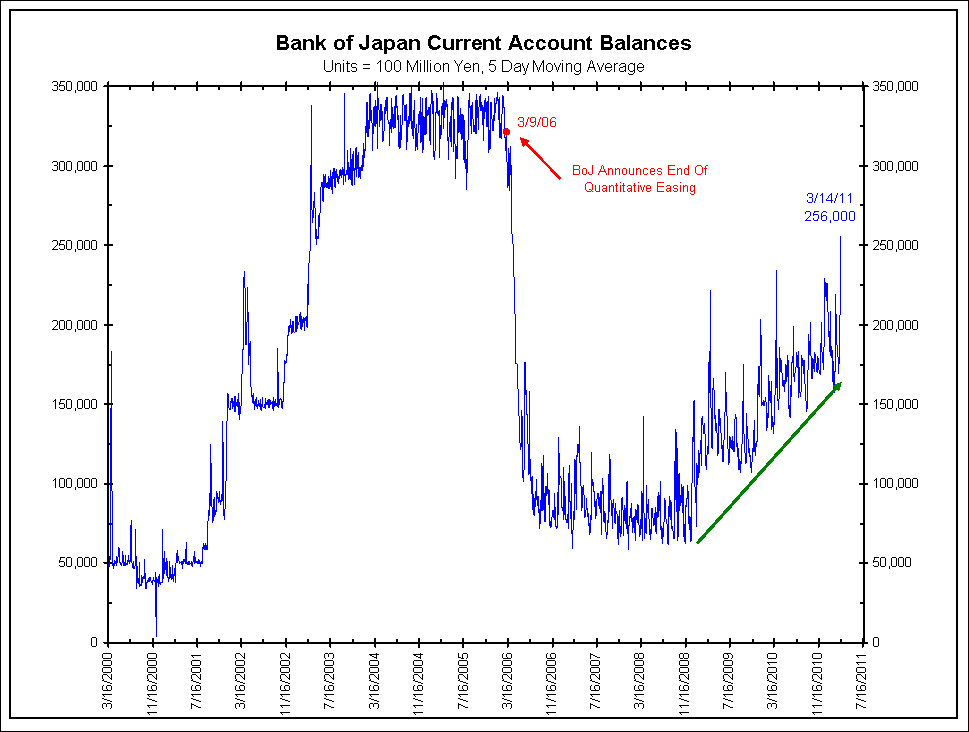
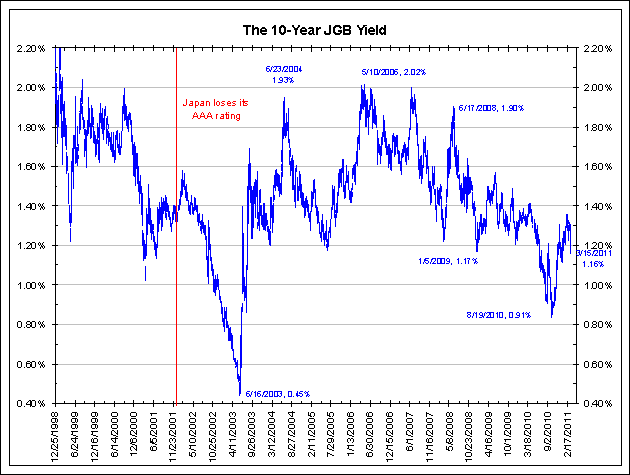
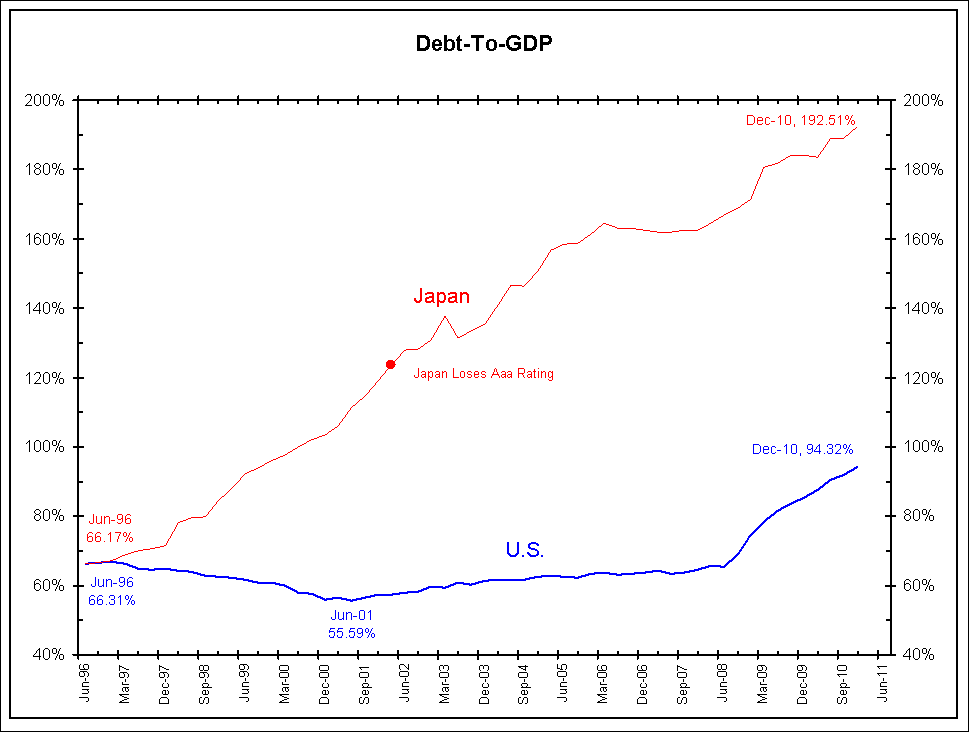

What's been said:
Discussions found on the web: